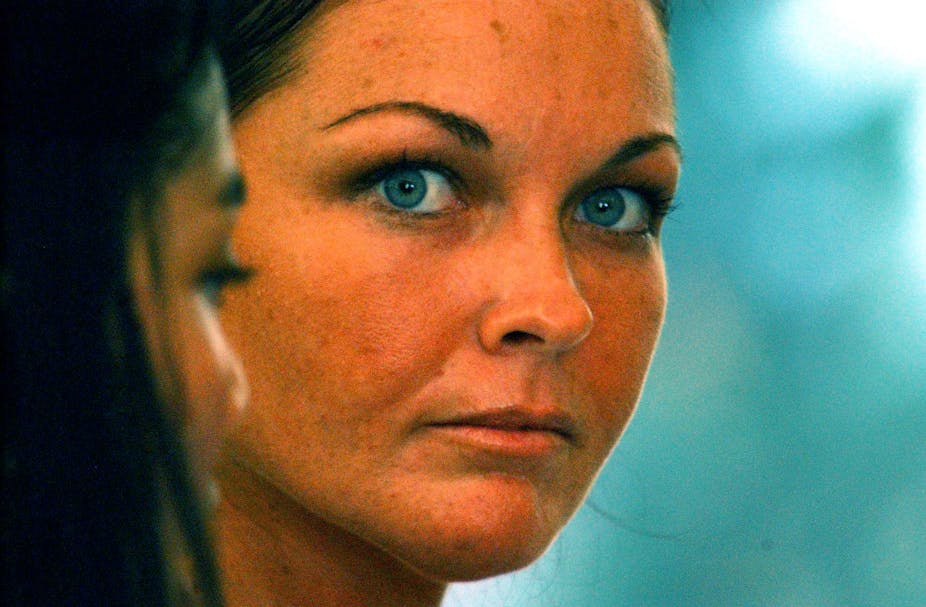I’d written a piece for the ABC about “Our Schapelle”.
As is often my approach it was largely a think piece. Not a condemnation, not a defence, it was simply some observations – some talking points – about Australia’s unrelenting fascination with the case. I contended that Schapelle Corby’s endurance as a media spectacle is grounded in her appeal to both bogans and their detractors alike.
Facetious, sure, but that’s my bent.
This morning, I woke to a meaty handful of … interesting tweets. A few particularly unique ones stood out; my favourite alleging my apparent kinship with Rupert Murdoch. Another daring to “spotlight” my contempt for the working class. A phone call came mid-morning where I was asked, point blank: “Did you read my tweet? I called you a rabid dog.”
Nice.
I’ll take being called a Nazi, a “toadie” (whatever that might involve), a dog, a capitalist, whatever on the chin. These are the kind of low-hanging, default jibes deployed by those with differing views. The bit that really stuck in my craw however, was the accusations of me being a bad feminist. A witch-burner. That I’m on some kind of crusade to condemn Our Schapelle based on her being a woman.
Feminism wasn’t actually mentioned in my ABC article article at all so I daresay this brouhaha stems from some hasty Googling. I’m okay about this: I’m, as they say, copacetic with my politics.
What I’m far less okay with is Schapelle’s incarceration being turned into some kind of Heather Osland case. That my daring to ask some questions about media coverage, about public preoccupations, somehow makes me opposed to gender equality.
For the record, I don’t think Schapelle’s gender is unimportant here. On the contrary, in fact, she got lashings of undue media coverage because she was female, because she was white and because she was sufficiently feminine. Whether such coverage helped or hindered her case is open to debate, but many a rock would need to be turned before we found someone who couldn’t identify her in a lineup.
And this boils down to her being photogenic-enough.
So Schapelle happens to be a woman. Not all that interesting: roughly 50% of us identify with this descriptor.
She’s a woman but she’s also a person who was convicted of drug smuggling. She wasn’t locked up in Afghanistan for “adultery”, she wasn’t arrested in Saudi Arabia for driving a car, this wasn’t a case of prosecution on the grounds of her gender. She was convicted of trying to smuggle drugs into a country that prides itself on mind-bogglingly tough penalties.
Sure, she has lady bits. Does this make it a feminist case? Does it present feminists with some kind of obligation to rally around her? No. it bloody well doesn’t.
I’m not going to offer a potted history of the many different “feminisms” here. Suffice it to say we’re a broad church, persistently – and vigorously – duelling with one another. And yet of all the many issues we battle over, I can’t think of any of our factions who could spin a feminist defence of Schapelle here.
The idea that women should show carte blanche loyalty to our “sisters” – even when those sisters are convicted of crimes – is hilarious. It smacks of the worst kind of reverse discrimination, of wishful thinking and is pretty much proof of residence in fantasyland.
Feminists can, and do, criticise each other. While my feminism hasn’t quite “progressed” to ringing other women up and calling them dogs, hey, we’re a broad church.
I’m not sure this church, however, has room for an immediate assumption that just because we dare disagree with one another, that this is evidence of treachery, of a brewing cat fight or some kind of post-feminism agenda. In fact, these are the very allegations that misogynists use to distract us, to turn us against each other and to paint women as petty.
I don’t actually have strident views on the contents of that boogie board bag one way or the other. I’ve never really cared all that much. At my disposal, however, is Schapelle’s conviction and, more in my realm of interest, unrelenting media coverage.
What I do know – and what I do care about – is that there are actual political prisoners in jails around the world whose causes ache for even a skerrick of the attention Schapelle has been given. Equally I know that the day we publicly care for Renae Lawrence to the extent that we seem to for Our Schapelle is gobsmackingly unimaginable.
There’s infinite frames to examine the Schapelle story. Pitching it as one of gender inequality is laughable.

